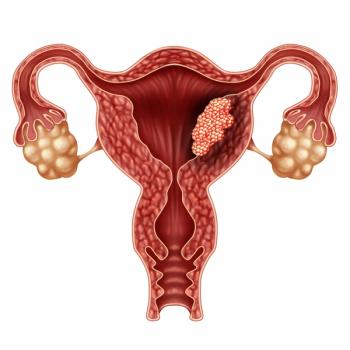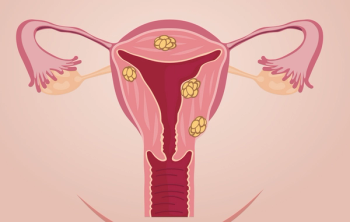
Nab-Sirolimus appears to produce responses in patients with perivascular epithelioid sarcoma regardless of TSC1/TSC2 mutation status.

Your AI-Trained Oncology Knowledge Connection!


Nab-Sirolimus appears to produce responses in patients with perivascular epithelioid sarcoma regardless of TSC1/TSC2 mutation status.

Ex vivo generation of CD3-positive, CD56-positive Natural Killer-Like (NKT) with CRX100 was successful in all 7 patients with ovarian cancer in a phase 1 trial.

The regulatory agency sets a Prescription Drug User Fee Act date of August 13, 2024, for denileukin diftitox in relapsed/refractory cutaneous T-cell lymphoma.

Data from the phase 3 PhALLCON trial support the FDA accelerated approval of ponatinib plus chemotherapy in adult patients with newly diagnosed Philadelphia chromosome–positive acute lymphoblastic leukemia.

Data from the DUO-E trial support potential new durvalumab-based treatment options for patients with advanced or recurrent endometrial cancer.

Data from the phase 3 LEAP-001 study support lenvatinib plus pembrolizumab as an active combination for endometrial cancer.

mRNA may be a potential modality for developing cancer-based vaccines, according to Catherine J. Wu, MD.

Some patients with large B-cell lymphoma may have to travel a great distance for an initial evaluation for CAR T-cell therapy.

Brian Slomovitz, MD, MS, FACOG discusses the use of new antibody drug conjugates for treating patients with various gynecologic cancers.

The use of ChatGPT may help to improve genetic counseling for patients with gynecologic cancer.

Analyzing the KRAS mutation across various cancer types may be a worthwhile target when using a cancer vaccine or immunotherapy, says Catherine J. Wu, MD.

Edward S. Kim, MD, MBA, and Richard T. Lee, MD discuss how integrative oncology techniques such as acupuncture have impacted patient quality of life at their practice.

SEER data showed that Black patients endometrioid endometrial carcinoma had higher 5-year cancer-related death rates compared with their White counterparts.

Education is essential to referring oncologists manage toxicities associated with CAR T-cell therapy for patients with large B-cell lymphoma.

A phase 2 trial showed favorable antitumor activity when tislelizumab plus chemotherapy was used for patients with locally advaned cervical cancer.

Patient reported outcomes from the phase 3 MIRASOL trial showed improvement when mirvetuximab was used vs standard of care in folate receptor-alpha positive ovarian cancer resistant ovarian cancer.

The phase 2/3 NRG-GY005 trial assessing olaparib plus dediranib did not improve survival vs standard of care in ovarian cancer.

Study finds social determinants of health linked to variations in cervical cancer rates.

The survival benefit with dostarlimab/chemotherapy was deemed unprecedented in patients with microsatellite instability high primary advanced or recurrent endometrial cancer.

Results from the KEYNOTE-868 trial showed a favorable benefit of pembrolizumab plus chemotherapy across endometrial cancer subgroups.

There is no absolute age cutoff where CAR T cells are contraindicated for those with large B-cell lymphoma, says David L. Porter, MD.

The ODAC meeting concluded that ide-cel showed a favorable risk/benefit profile for patients with pretreated relapsed/refractory multiple myeloma.

ODAC voted on the risk/benefit ratio of cilta-cel vs standard of care for patients with lenalidomide-refractory multiple myeloma.

The regulatory agency set an action date of December 28, 2024 for ensartinib as a treatment for those with ALK-positive non–small cell lung cancer.

A cohort study for patients with non–small cell lung cancer found an overall survival benefit when targeted therapies were utilized.

David L. Porter, MD, emphasizes referring patients with large B-cell lymphoma early for CAR T-cell therapy consultation.

Patients with relapsed/refractory chronic lymphocytic leukemia or small lymphocytic lymphoma can now receive lisocabtagene maraleucel after the FDA approved the drug, which was based on the phase 1/2 TRANSCEND CLL trial.

Results from the phase 3 RATIONALE 302 trial led to the approval of tislelizumab for patients with unresectable or metastatic esophageal squamous cell carcinoma.

Members of the committee reviewed findings from the phase 2/3 IMerge trial assessing imetelstat in patients with transfusion-dependent anemia in myelodysplastic syndromes.

Findings highlighted tumor reductions in patients with recurrent glioblastoma who received CART-EGFR-IL13Rα2 cells at 2 dose levels.